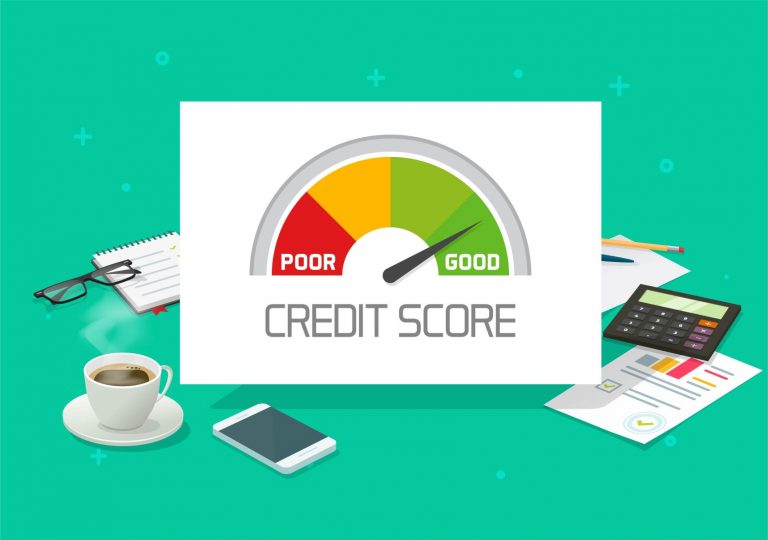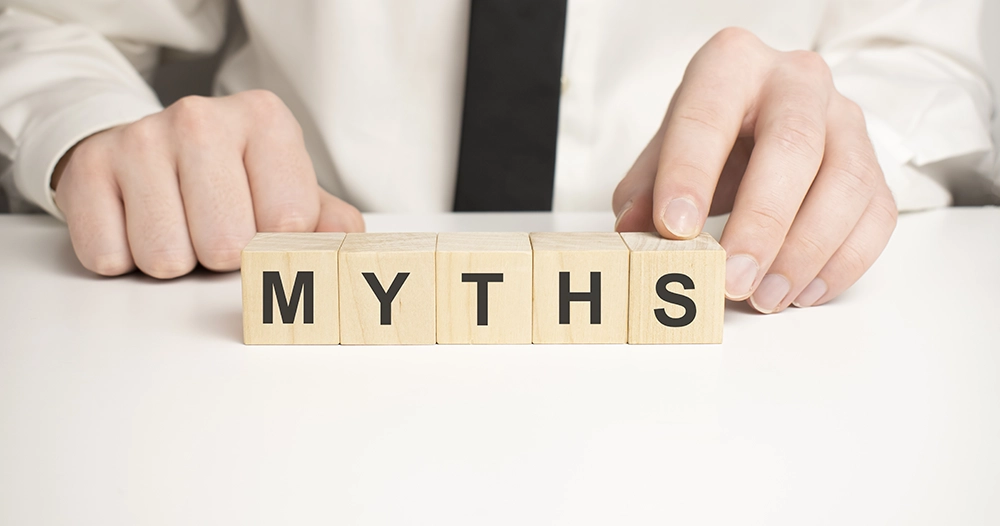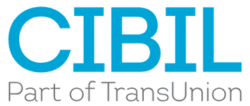Introduction
Credit score is one of the most important factors determining your loan approval. These credit scores are calculated by credit bureaus. In India we have four functioning credit bureaus. TransUnion CIBIL is the oldest credit information company in India that functions under the Reserve Bank of India (RBI)’s approval. The other three being High Mark, Equifax and Experian. The factors taken into account for the calculation of credit score remain more or less constant among all the bureaus. These factors include – Payment history, Credit mix, Amount owed among others. Based on these factors a credit score is given to each individual.
In this blog we will develop a deeper understanding of what is credit score, what a score indicates, factors impacting credit score, how can we check the credit score and things we can do to improve the credit score.
What is Credit score?
Credit score measures the ability of an individual to pay back the amount of credit borrowed. It is a 3 digit number within the range of 300-900. Higher the value, higher the credit worthiness of the individual. Calculation of credit score takes into account various factors such as repayment patterns, length of credit history, number of open accounts, debt levels, percentage of available credit being used among others.
A credit score plays an extremely important role in determining whether or not a person receives credit, and if yes how much. They determine the lender’s decision to offer credit and subsequently decide on the rate of interest to be charged, principal amount to be lent out and the tenure for the same.
Credit score is calculated by credit bureaus such as CIBIL and Credit Information Bureau Limited. Once a relevant transaction to the score is made, details of the same are sent to the credit bureaus as mandated by the RBI. Banks can easily check the credit score of an individual by approaching any credit bureau.
Different Types of Credit Bureaus in India
A credit report is prepared by credit information companies or credit bureaus. The job of a credit bureau is to collect and compute data and provide data around credit worthiness and credit history of an individual. Lenders can easily approach the bureaus and check the credit score of an individual. In India there are a total of 4 credit bureaus, all of which are licensed by the Reserve Bank of India (RBI).
The 4 credit bureaus are:
- TransUnion CIBIL, established in 2000
- CRIF Highmark, licensed by RBI in 2010
- Equifax, license granted in 2010
- Experian, license granted in 2010
Each credit bureau has its own algorithm to compute credit scores and credit scores from all these bureaus are considered valid. All the credit bureaus consider similar factors while calculating the credit score. Factors such as repayment history, credit type, credit tenure among others are considered while computing.
Different Credit Score ranges and their significance
As discussed earlier, credit score in India ranges between 300-900. The closer the score to 900, the better. Higher the credit score, higher are the chances of getting a loan approved.
Let us take a closer look at various credit score ranges and what their significance is:
NA/NH – This means Not Applicable or No History. This happens when one has not applied for any loan or has any credit cards.
- 350-549: This is considered to be a bad CIBIL score. Potential reasons for the same could be extremely late payments on your credit card payments or EMIs on your loan. With a score as low as this, it would prove to be extremely difficult for a person to secure a loan or get a credit card as there is an extremely high risk of them defaulting on the repayment.
- 550-649: This is considered to be a decent CIBIL score. It gives the impression that the individual is finding it difficult to keep up with their payments. Subsequently, the loans offered could carry a higher interest rate than average because there is a high default risk attached.
- 650-749: This is considered to be a good CIBIL score. By continuing to pay your dues on time, you can keep increasing the score. You have a good standing when it comes to proving your credit worthiness, but exists a room for improvement.
- 750-900: This is considered to be an excellent CIBIL score. It proves to the lender that one is regular with their credit payments and has an immaculate credit payment history. Someone with a credit score in this range can easily secure loans and credit cards as the probability of them defaulting is extremely low.
It is important to keep checking your credit score periodically and take necessary steps to improve the same.
CIBIL Score range and its meaning
CIBIL score is a 3-digit number that gives the complete summary of the credit history of an individual and ranges between 300 and 900. The closer the score is to 900, the better. A score above 750 is a good benchmark and will ensure that you secure loans and credit cards without any major issues. If the credit score is lower than 750, it will be difficult to obtain loans and credit cards. Even if you end up getting a loan, the interest rates might be higher when compared to interest rates offered to someone with a 750+ credit score.
Experian Score Range and its meaning
The Experian score ranges between 300 and 850. As mentioned earlier, the higher the credit score, the better. It gives banks and NBFCs confidence in the creditworthiness of an individual, and hence one can procure loans with ease with a higher credit score. Higher credit score also ensures lower down payment and interest rates.
- A credit score from 300-579 is considered to be extremely poor, and financial institutions will be wary of providing credit to such an individual.
- A score from 580-669 is considered to be fair. This indicates that the individual faces problems in repayment of credit amount and loan EMIs.
- A score from 670-739 is considered to be good, but there still exists enough room for enhancement.
- Any score above 800 is considered to be an excellent credit score. Any score above 700 is considered to be a very good credit score. These scores will ensure easy procurement of credit from banks and NBFCs.
Just like with CIBIL score, The Experian score also depends on a multitude of factors such as credit history, credit utilization rate, payment history and others.
Factors such as income level, employment status, age, living situation do not directly impact the calculation of your credit score.
EquiFax Score Range and its meaning
EquiFax score ranges from 300 and 850 just like the Experian score. They are also calculated using information such as payment history, length of credit history. A higher score points to the fact that one has shown responsible credit behaviour. This makes potential lenders much more confident while giving credit.
The credit score ranges usually indicate the following:
- 300-579: This is a poor credit score. This indicates poor upkeep with loan repayments and possible defaults on EMIs on loan amounts.
- 580-669: This is considered to be a fair score. It gives the impression that the individual is finding it difficult to keep up with their loan payments. Subsequently, the loans offered could carry a higher interest rate than average because there is a high default risk attached.
- 670-739: This is considered to be a good credit score. By continuing to pay your dues on time, and keeping your credit utilization rate on the lower side, you can keep increasing the score.
- 740-799: This is considered to be a very good credit score. Banks and NBFCs will be willing to offer you credit at a lower interest rate. This score indicates that the individual has a good history with loan repayment.NBFC
- 800-850: This is considered to be an excellent credit score. This indicates an immaculate credit repayment history. Banks and NBFCs would offer loans and credit with lower interest rates as they have evidence of the individual’s creditworthiness.
CRIF High Mark Score Range and its meaning
CRIF score ranges from 300-900, similar to CIBIL. As mentioned earlier, higher the score, higher your credit worthiness.
Here is what the scores indicate:
- 300-500: This is a poor score and indicates that the individual is at an extremely high risk of defaulting on their credit and has a lot of trouble with repayment of their credit. Most likely, credits will not provide credit to such an individual.
- 500-650: This is a fair score. It indicates that the individual has probably defaulted on payments in the past. These cases are not very likely to be presented with credit options, at least not without high interest rates.
- 650-750: This is a good credit score and indicates good payment history. An individual with this score will potentially get credit easily.
- 750-900: This is an excellent credit score. Individuals with this credit range are considered to be the ideal candidates for credit and are likely to get preferred credit amounts as they have a spotless record of paying off all their dues.
What Are the Factors That Affect Credit Scores?
Regardless of the credit Bureau, the credit scores are usually calculated basis the below-mentioned factors:
- Payment History
This is the most important aspect while calculating credit scores. The biggest risk associated in the mind of the lender is whether they will get their money back, hence, payment history plays a major role in determining credit score. Even one missed, or late payment can jeopardize your credit score.
- Amount Owed
Determining how much of the available credit amount you are using is the next biggest factor impacting your credit score. Credit utilization rate represents your credit usage and is calculated by dividing the credit amount you are currently using by the credit limit available to you. Using more than 30% of your available credit can paint a negative picture for potential creditors.
- Length of credit history
Calculation of credit score also takes into account how long one has held their credit accounts. Pointers such as the average lifespan of your credit account and the lifespan of your oldest credit account play a significant role in determining the credit score. Longer the credit history, better the score, considering you made timely payments.
- Credit Mix
Credit score also takes into account the different kinds of credits a person is using such as different credit cards, house mortgage, car loan EMIs and others. Usually, people with a diverse credit mix are scored higher than others.
- New Credit
Credit score takes into account how many new accounts have you applied for and how recently you opened a new credit account. This is usually done because people who are facing a financial crunch often enquire about new sources of credit.
It is essential to check your credit score from time to time in order to ensure there are no discrepancies in the calculation of the same and that your credit score is not affected negatively.
FREQUENTLY ASKED QUESTIONS
What is the difference between CIBIL Score & CIBIL Report?
CIBIL score is a number between 300-900 that signifies the credit worthiness of a person. CIBIL report is a summary of an individual’s credit history and loan related information. It also contains information such as PAN number, address and so on.
What factors affect your CIBIL Score?
Factors that affect CIBIL score are:
- Payment History: The biggest risk associated in the mind of the lender is whether they will get their money back, hence, payment history plays a major role in determining credit score.
- Length of credit history: Pointers such as the average lifespan of your credit account and the lifespan of your oldest credit account play a significant role in determining the credit score. Longer the credit history, better the score, considering you made timely payments
- Amount owed: Determining how much of the available credit amount you are using is the next biggest factor impacting your credit score. Using more than 30% of your available credit can paint a negative picture for potential creditors.
- Credit mixture: Credit score also takes into account the different kinds of credits a person is using such as different credit cards, house mortgage, car loan EMIs.
- New credit: Credit score takes into account how many new accounts have you applied for and how recently you opened a new credit account.
Keep checking your credit score periodically and in case any discrepancies are found, raise the issue with the bureau.
What kind of loans impact your Credit Score?
Any credit taken has the potential to impact your credit score. Some of the loans that impact your credit score include – Home loan, car loan, education loan, personal loans and so on.
How to Check CIBIL Score for free?
CIBIL provides one credit score and credit report for free, once a year.
Become a member and login to myCIBIL, go to the ‘My Account’ section and click on ‘Get your free report’ and check your credit score for free.
How can I improve my CIBIL Score?
Some ways of improving your CIBIL score are:
- Lengthen your credit history by not closing down old credit accounts, maintain them for as long as possible.
- Be aware of your credit limit and try and use 30% or lower of the credit available to you. Credit utilization ratio has a major impact on your credit score, hence try and be wary of the same.
- Do not take on too much loan amount all at once. Repay one loan amount and then take on the next loan.
- Choose different sources of credit. Diversification in credit will provide an extra jump to your credit score.
What information does a CIBIL Report have?
A CIBIL report contains all the information around an individual’s credit payment history. It contains sections such as the CIBIL score, personal information such as name, gender, DOB, PAN and others, contact information, employment information with a breakdown of monthly and yearly income, account information detailing name of lenders, types of loans taken, account number, date of last payment and so on and enquiry information, which means that everytime you apply for a loan or credit, it gets registered in the system as an “enquiry”.
What is the difference between CIBIL Report & CIBIL rank?
CIBIL report is a summary of an individual’s credit history and loan related information. It also contains information such as PAN number, address and so on.
CIBIL rank is like CIBIL score, but for companies. It is provided from a scale of 1-10, where 1 is the best rank. It indicates the company’s likelihood of missing out on payments and their overall credit worthiness.
How to contact CIBIL customer care?
One can contact CIBIL on the customer care number provided by them. Call on (+91)22-6140-4300 (Monday to Friday between 10:00 AM to 06:00 PM) and talk to their customer support executives.
Why don’t I have a Credit Score?
The following could be reasons why you don’t have a credit score:
- You have never made use of credit accounts: If you have never taken any credit or loan amount, a credit score can not be populated.
- You have not used credit in 24 months or more: It is important to periodically make use of your credit accounts. If the account is inactive for too long, there might not exist enough data to generate a credit score.
- You recently applied for a credit account: If you just recently applied for a credit account, it may take a certain amount of time before the credit score gets reflected. Also you might have to make enough transactions for the algorithm to give a proper credit score.
Is a credit score of 650 a good or bad score?
A credit score in the range of 650-699 is considered to be a decent credit score where credit approval is possible but not without high interest rates. There exists a huge scope for enhancement.
How can I raise my credit score fast?
Here are some simple ways to raise your credit score fast:
- Pay your dues on time: Lenders make a note of whether you will be able to repay the credit amount. Therefore, past performance becomes a pertinent indicator of future credit behaviour.
- Keep credit utilization rate low: Ensure that the credit amount you use is not more than 30% of the credit you have available at your end.
- Don’t close unused credit cards: Do not close a credit account just because you do not use it any longer. Keeping a credit account open for a longer period of time actually helps improve your credit score.
- Don’t enquire about new credit too often: It is advisable to not enquire for new streams of credit often as this could give the impression that you are low on funds and need credit coming in to pay your current bills.
What is the perfect Credit Score?
Credit scores can range from 300-900 but any score above 750 is considered to be an excellent credit score.
What is a good credit score to buy a Car?
An ideal credit score for a car loan is 750 and above.
What is a good credit score to buy a House?
The ideal credit score for a home loan is around 550-600 and above.







